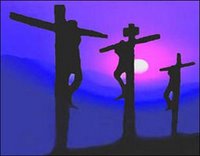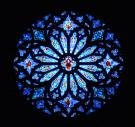He Is Risen
 We've now reached the pinnacle of our Christian calendar! Easter has arrived in all its splendour and fanfare. The Resurrection, Christ's bursting from the tomb; it is the core of our affirmation of faith, the heart of our Christian message of good news.
We've now reached the pinnacle of our Christian calendar! Easter has arrived in all its splendour and fanfare. The Resurrection, Christ's bursting from the tomb; it is the core of our affirmation of faith, the heart of our Christian message of good news.But does the celebration of life over death have a wider resonance? Does it point towards a common facet of the human spirit - the refusal to let death have the last word?
In Moldova, more and more children arrive in our homes, these are the lucky ones - those who either escaped the clutches of their traffickers, or were simply left abandoned or discarded as 'unsaleable.' Yet not even a ripple is made in the news from where they originated. These children were the detritus of society, and their life or death means little or nothing to anyone. And each day governments diligently work to obfuscate the truth of countless innocent women, children, babies, and elderly dying in Ukraine's senseless war. Again, just like a replay of Iraq, their numbers are being hidden in buffering euphemisms such as ‘collateral damage.’
And in hospitals, nursing facilities, and our private homes, people who have had long journeys, are breathing shallow breaths, still holding on to the essence of life, for just a few more minutes, before they begin their new journey.
Throughout our human story, death remains the enemy. It is never welcomed; it is always looked upon as a curse or an affront to life.
As Christians we draw upon our faith in life beyond the grave from the events of Easter. That life beyond, that renewal, powerfully draws us away from the grave and invites us to live our lives knowing that it will never end in destruction. Instead our lives have a resonance and meaning that our mortal death cannot touch.
The human spirit shares two powerful spiritual emotions: First it is the awareness of what is passing away. The other is the awareness of a new life that lies on the other side of pain and struggling.
And perhaps we’ve become a little wiser, recognising that resurrection, whether in this world or the next, is never a simple return to the lost innocence of Eden.The ingredients of the new life are a culmination of the painful and costly struggles in which we engage every day.
This is why, according to our Christian teachings, when Jesus rose from the dead, there were still wounds in His hands and side. They’re reminders of what He gave for us, for our salvation, for our sins, so that we may live again.
Wherever you may be on our great and fragile planet, may you always walk with the Risen Christ within you.
Praise Christ Jesus!
Írásos Bill atya gyűjteményéből. Imádkozunk az egészsége. LR
Labels: celebrating easter, Easter morning, funeral liturgy








